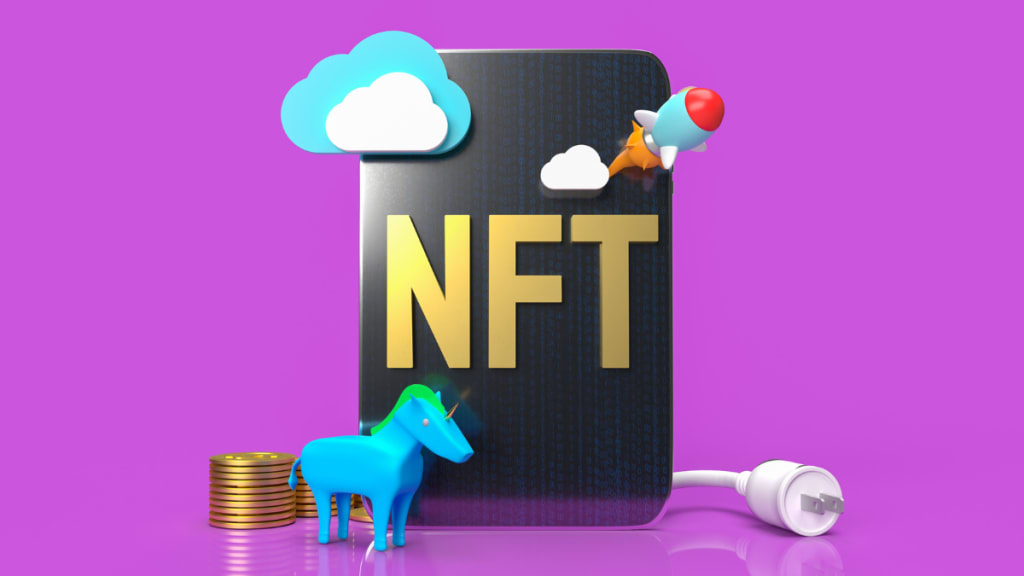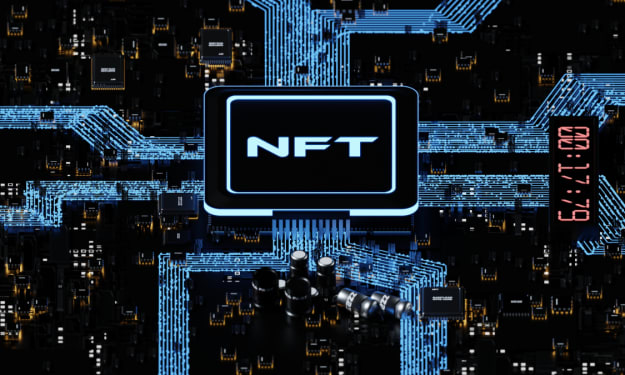NFT Marketplace Clone Development: Building Your Own Digital Asset Exchange
NFT Marketplace Clone Development

The world of digital assets has witnessed a revolutionary trend with the advent of NFTs (Non-Fungible Tokens). These unique and indivisible tokens have disrupted the traditional art, gaming, and collectibles industries, allowing creators and investors to tokenize and trade digital assets securely on decentralized platforms called NFT marketplaces. In this dynamic landscape, entrepreneurs and businesses are increasingly exploring the potential of NFT marketplace clone development. Building your own digital asset exchange offers unparalleled opportunities for innovation, community building, and revenue generation. In this article, we will delve into the key aspects of NFT marketplace clones, exploring the benefits, challenges, and essential steps involved in the development process. Whether you are an aspiring developer or an established enterprise seeking to tap into the NFT revolution, this guide will equip you with the knowledge and insights to embark on a successful journey in the exciting realm of NFTs.
What is an NFT Marketplace Clone?
An NFT marketplace clone is a replicated version of an existing NFT platform that allows users to buy, sell, and trade non-fungible tokens. These clones are designed to mimic the functionalities and features of the original platform, enabling entrepreneurs and developers to create their own NFT marketplace quickly and efficiently. By cloning an established NFT marketplace, users can benefit from a proven and tested model, avoiding the need to build the platform from scratch. While NFT marketplace clones share core functionalities with their predecessors, they may also incorporate unique customizations and improvements to cater to specific target audiences or niche markets. Overall, NFT marketplace clones serve as a convenient solution for those seeking to enter the booming world of NFTs with a ready-made platform.
The Rise of NFTs and the Need for NFT Marketplaces
The rise of NFTs (Non-Fungible Tokens) has been a transformative force in the digital landscape, revolutionizing the way we perceive and trade digital assets. NFTs represent unique and indivisible tokens that authenticate ownership and provenance, making them ideal for representing digital art, collectibles, virtual real estate, and more. As the popularity of NFTs surged, the need for NFT marketplaces became evident. These platforms provide a decentralized and secure environment for creators, collectors, and investors to buy, sell, and trade NFTs, fostering a vibrant ecosystem for digital asset exchange. NFT marketplaces have democratized access to the world of digital ownership, empowering creators to monetize their work and enthusiasts to explore new and exciting avenues of collecting and investing in the digital realm.
Advantages of NFT Marketplace Clones
- Quick Market Entry: By using an NFT marketplace clone, entrepreneurs can avoid building a marketplace from scratch, reducing the time it takes to enter the market significantly.
- Lower Development Costs: Developing an NFT marketplace from scratch can be expensive. Utilizing a clone script can save development costs and resources, allowing entrepreneurs to allocate their budget more effectively.
- Proven Business Model: NFT marketplace clones are based on successful platforms, which means that the business model has already been validated, reducing the risk of failure.
- Customizability and Scalability: Even though NFT marketplace clones come with pre-defined features, they are highly customizable and scalable. Entrepreneurs can add their unique features to stand out in the competitive market.
Key Features of NFT Marketplace Clones
FT marketplace clones typically aim to replicate the essential features of popular NFT platforms while allowing for customization and enhancements. Here are some key features commonly found in NFT marketplace clones:
- NFT Creation and Minting: The ability for users to create and mint their NFTs, representing unique digital assets with distinct attributes and metadata.
- Buying and Selling: Facilitating seamless transactions, enabling users to list NFTs for sale and purchase items using cryptocurrencies or other payment methods.
- Wallet Integration: Integration with cryptocurrency wallets to securely store, manage, and transfer NFTs.
- Auctions and Bidding: Support for auction-style sales, allowing sellers to set minimum prices and buyers to place bids on NFTs.
- Royalty Mechanism: Automatic royalty or commission distribution to creators whenever their NFTs are resold on the platform.
- Rarity and Scarcity Management: Tools to define and manage the scarcity and rarity of NFTs, ensuring their uniqueness and value.
- User Profiles: Personalized user profiles with activity history, collections, and social features to foster community engagement.
- Search and Filtering: Robust search and filtering capabilities to help users discover specific NFTs based on various criteria.
Popular NFT Marketplace Clone Scripts
Several NFT marketplace clone scripts are available in the market, each with its unique features and benefits. Some popular ones include:
- OpenSea Clone: OpenSea is one of the largest NFT marketplaces, and its clone script provides a solid foundation for building a similar platform.
- Rarible Clone: Rarible is known for its governance token, allowing community members to influence platform decisions. Its clone script offers similar capabilities.
- Foundation Clone: Foundation is an invite-only NFT marketplace, and its clone script enables entrepreneurs to create an exclusive platform.
- Super Rare Clone: Super Rare focuses on high-quality digital art, and its clone script is ideal for art-centric NFT marketplaces.
How to Develop an NFT Marketplace Clone?
- Research and Planning: Before diving into development, thorough market research and planning are crucial. Understanding the target audience, competitors, and unique selling points will guide the development process.
- Choosing the Right Blockchain: Selecting the appropriate blockchain is essential, as it impacts the scalability, security, and transaction costs of the NFT marketplace.
- Smart Contract Development: Developing robust and secure smart contracts is at the core of any NFT marketplace. Expert blockchain developers should handle this critical aspect.
- Front-end Development: A user-friendly and visually appealing front-end is essential for engaging users and ensuring a seamless experience.
- Testing and Quality Assurance: Comprehensive testing and quality assurance are necessary to identify and rectify any bugs or security vulnerabilities.
- Deployment and Launch: Once the development is complete, the NFT marketplace can be deployed and launched for public use.
Tips for a Successful NFT Marketplace Clone
- Niche Targeting: Identify a specific niche or community and tailor the NFT marketplace to cater to their needs and interests.
- Community Building: Fostering a strong and engaged community around the NFT marketplace can drive user adoption and loyalty.
- Marketing and Promotion: Effective marketing strategies can create buzz and attract both creators and collectors to the platform.
- Support and Updates: Providing excellent customer support and regular platform updates can enhance user satisfaction.
Conclusion
The world of NFTs has taken the digital realm by storm, reshaping the way we perceive and interact with art, gaming, and collectibles. As interest in NFTs continues to soar, entrepreneurs and businesses are recognizing the immense potential of NFT marketplace clone development. Building your own digital asset exchange can be a transformative endeavor, offering a gateway to creativity, financial opportunities, and community engagement. However, navigating the complexities of the NFT landscape demands careful planning, technical expertise, and a deep understanding of the market's nuances. By leveraging the insights and best practices outlined in this guide, aspiring developers and established enterprises alike can embark on their journey with confidence. As the NFT space evolves, embracing innovation and user-centric design will be key to creating thriving NFT marketplaces that empower creators, collectors, and investors worldwide. Now is the time to seize this opportunity and leave an indelible mark on the future of digital asset exchange.






Comments
There are no comments for this story
Be the first to respond and start the conversation.